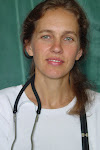New research around vitamin D is showing that those deficient in the vitamin may have more far reaching implications than just bone health.
For instance, an article published in the August edition of the journal Nutritional Reviews states that upwards of 50% of breast and colon cancer cases could be prevented by increasing the intake of vitamin D. Researchers at the University of California, San Diego compiled data from observational studies to the show an inverse link between low serum vitamin D levels and cancer.
The study went on to establish that the type of vitamin D was as important as the dosage, indicating that cholecalciferol was far more bioactive and effective than ergocalciferol, and that the latter should be discontinued in favor of the former.
Another article, published in the September 2007 issue of Archives of Internal Medicine, paints a much broader picture for the health benefits of vitamin D. The article, a meta-analysis of 18 previously published studies, reports that vitamin D deficiency may not only affect cancer risk, but also heart disease and diabetes.
Researchers from the International Agency for Research on Cancer in France and the European Institute of Oncology in Italy wrote; "in conclusion, the intake of ordinary doses of vitamin D in supplements seems to be associated with decreases in total mortality rates".
While the researchers look forward to population based, placebo controlled randomized trials in order to further understand the mechanisms involved, the consensus is that vitamin D supplementation may be an easy and powerful way to decrease overall mortality.
In light of this research, consumers should feel compelled to select dietary supplements that are fortified with not just vitamin D, but specifically vitamin D3, cholecalciferol.
Currently, most experts in the field believe that intakes of between 1000 and 4000 IU will lead to a more healthy level of serum 25(OH)D, in the range of 75 nmol/L that will offer significant protection effects against cancers of the breast, colon, prostate, ovary, lungs, and pancreas.
http://www.ncbi.nlm.nih.gov/sites/entrez?Db=pubmed&Cmd=ShowDetailView&TermToSearch=18034918&ordinalpos=2&itool=EntrezSystem2.PEntrez.Pubmed.Pubmed_ResultsPanel.Pubmed_RVDocSum
Colorectal cancer mortality was inversely related to serum 25(OH)D level, with levels 80 nmol/L or higher associated with a 72% risk reduction (95% confidence interval = 32% to 89%) compared with lower than 50 nmol/L, P(trend) = .02.
http://www.ncbi.nlm.nih.gov/sites/entrez?Db=pubmed&Cmd=ShowDetailView&TermToSearch=17971526&ordinalpos=13&itool=EntrezSystem2.PEntrez.Pubmed.Pubmed_ResultsPanel.Pubmed_RVDocSum
I checked several of my patients during the summer, thinking at that time of year they should have high or at list normal level of vitamin D; to my surprise they all had below normal levels. Today’s normal is between 40 and 60nmol/L. The articles cited here recommend 75(80) nmol/L and higher.
Tuesday, November 27, 2007
Subscribe to:
Post Comments (Atom)

2 comments:
Thanks for the article! Little question.... I think Vitamin D is absorbed through sun exposure...is sunlight a good/better/worse form of Vitamin D than supplements?
The best Vitamin D made during the summer under the sun exposure (between 9 -12am or 3-6pm). It made in the skin from cholesterol and converted into an active form in the kidney, then stored in the liver for the winter.
To get adequate amount of Vitamin D we need to spend almost every day in the sun during those hours (let’s say between 9AM and Noon.). Often we are working during the summer and then on week-end, when we have the time, we put a lot of sunscreen to protect us from skin cancer. It prevents Vitamin D formation in the skin. Many factors effect Vitamin D formation: season, latitude, time of day, cloud cover, smog, and sunscreens. (I’ll devote an article to sunscreens soon).
Only a few foods naturally contain significant amounts of vitamin D; these include fatty fish, fish oils and cow’s milk (fortified). Although milk is fortified with vitamin D, dairy products made from milk such as cheese, yogurt, and ice cream are generally not fortified with vitamin D. And remember, cow’s milk is not the best food for humans.
As a result of life style and insufficient food sources, we are deficient.
Check your Vitamin D level now. If it is low, I would recommend taking a supplement. But during the summer… just spend more time outside
Dr. Veronica
Post a Comment